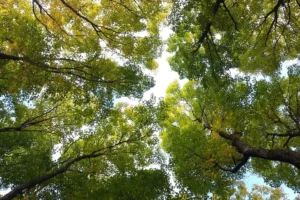
Also in the midst of the coronavirus pandemic, school students, youth activists and communities around the world have turned out for a day of climate strikes to demonstrate the severity of the climate crisis.
The demonstrations were dampened by social distancing and other Covid-19 regulation mechanisms, but thousands of activists have posted on social media and taken to the streets to protest the lack of climate action from world leaders. Strikes have been planned in at least 3,500 sites around the world.
Friday’s strikes, some in the form of mostly socially distanced physical street marches and some strictly online gatherings, were smaller and much more muted than last year’s September week of protest, which was reported to have included at least 6 million people around the world.
In Sweden, Greta Thunberg led a strike, which was restricted by the country’s lockout laws to 50 citizens-” but we adapt, “she tweeted, with a photo showing strikers more than 2 meters apart. The day of action also marked her own school strike’s 110th week, which began in August 2018.
Fridays For Future and the youth climate movement are striking again around the world to demand that those in authority handle this like the urgent issue it is, in a secure way and according to Covid-19 guidelines, “she said.”
The global youth movement that coalesced after the groundbreaking strike of Thunberg, Fridays for the Future, said protests were expected in at least 150 countries.
Protesters gathered in Canberra on the lawns of Australia ‘s parliament, with posters calling on politicians to “fund our future-not coal” and remembering the devastating bushfires that burned through the area earlier this year.
Marchers and banners in the Philippines related the strike to fears about the use of terror laws to outlaw demonstrations and to the plight of poor countries neglected by the rich world. “We Filipinos are among the most affected, ranked second in the latest global climate risk index, but our contributions to greenhouse gas emissions are so small, Mitzi Jonelle Tan, an activist, said:” We Filipinos are among the most affected, ranked second in the latest global climate risk index, yet our contributions to greenhouse gas emissions are so little. Those who have contributed most to the climate crisis are often the least affected-and what are they doing now? It is time for world leaders to wake up to the truth of the climate crisis.
In major cities in India, there were strikes and demonstrations, with placards complaining that “it’s getting hot here,” reflecting projections that in the coming decades, hundreds of thousands of people could die each year from heatwaves in India if global heating continues to increase at current rates. We, the people most affected by climate negotiations, are going to change the dialogue and lead a reasonable recovery plan that helps people and not our government’s pockets.

Strikes in Bangladesh drew attention to the danger to the nation from rising sea levels, as after their homes were flooded, tens of thousands of people are now refugees. Hilda Flavia Nakabuye, Uganda’s Fridays for Future activist, contrasted the action taken to contain the coronavirus with the much slower climate development. We have temporarily stopped striking-but we know that the on-going “Fridays for Potential activists from around the world are rising up to call for immediate action against climate breakdown.” The thinktank Climate Action Tracker predicted that the pledges will minimize global temperature increases by between 0.2C and 0.3C if followed up.
The UK, which will host the next UN climate summit in November 2021, called Cop26, has also stepped up its diplomatic campaign. This December, on the fifth anniversary of the Paris Agreement, the Prime Minister, Boris Johnson, and the UN Secretary General, Ant’ ⁇ uterres, will convene an interim summit of world leaders from major economies.
At that interim conference, all countries are expected to come forward with their national plans to improve their carbon-cutting efforts, called nationally defined contributions, or NDCs, in the jargon of the UN, as required under the 2015 agreement. School strikers from around the world want to contrast the urgency they feel with international forums’ slow development.
Source: www.theguardian.com
Carl Riedel is an experienced writer focused on using Open Source Intelligence (OSINT) to produce insightful articles. Passionate about free speech, he leverages OSINT to delve into public data, crafting stories that illuminate underreported issues, enriching public discourse with perspectives often overlooked by mainstream media.






